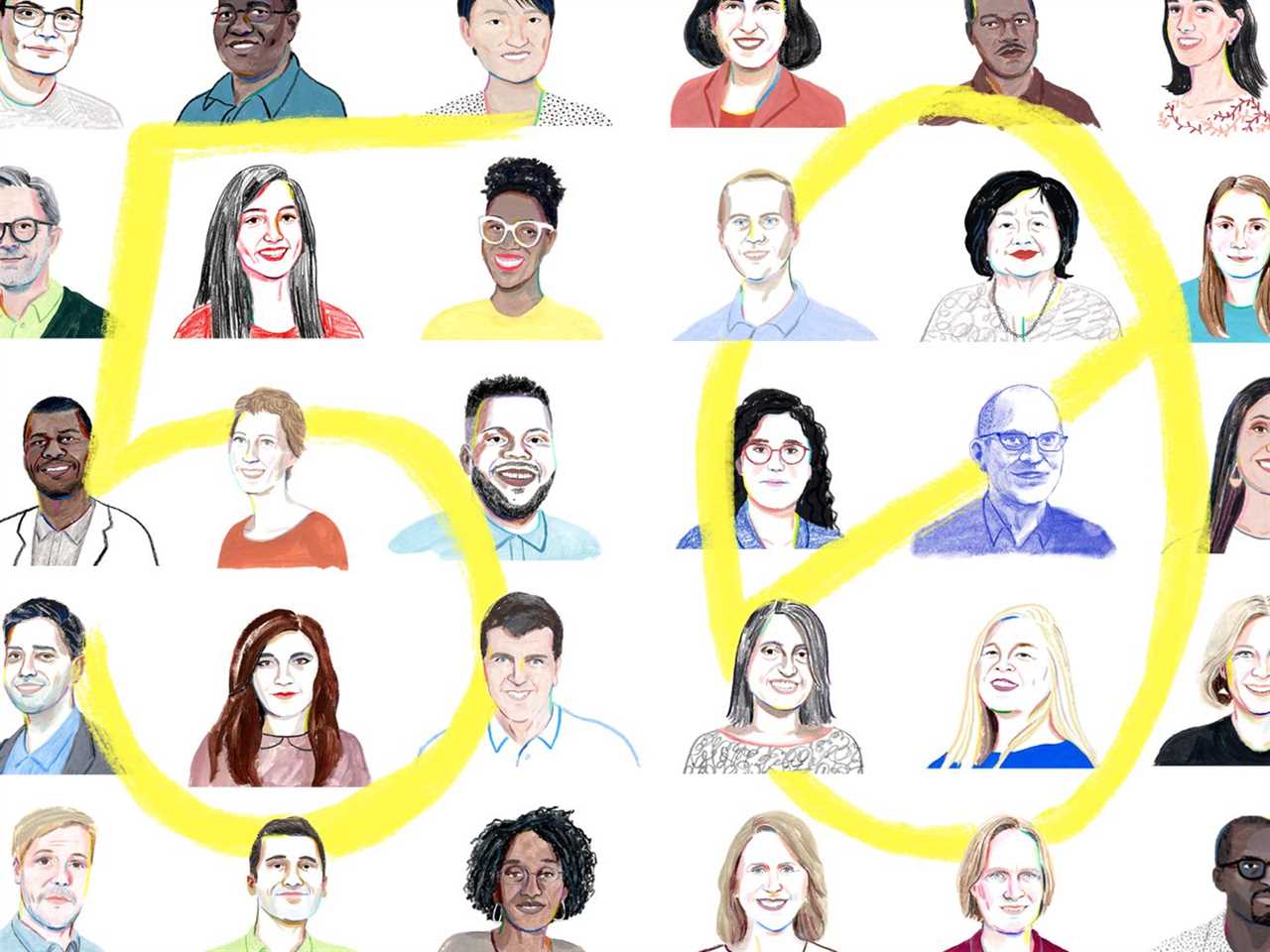
The scientists, thinkers, scholars, writers, and activists building a more perfect future.
Four years ago this month, we started Future Perfect. As Vox’s Dylan Matthews wrote at the time, Future Perfect’s mission was “to write about what’s important, not just what’s new.” That meant the ideas, the policies, and the programs that are bending the future toward a more perfect destination. Where much of the media focuses on what’s wrong, we try to identify what could go right.
But personnel, as the old White House saying goes, is policy. All the great ideas and good intentions in the world won’t get you far if you don’t have the right people in place to implement them. And that makes identifying those people all the more important.
That’s what we’re aiming to do with the Future Perfect 50 list. From the philosophers whose moral imagination pushes the boundaries of what is possible to the activists making the world a better and healthier place on the ground, from the technologists imagining the future to the ethicists ensuring it doesn’t go awry, the people we’ve highlighted embody the question Future Perfect asks every day: How do we make the future a better place for everyone?
For the past several months, the Future Perfect staff brainstormed to come up with a list of names we thought exemplified the work we were most excited about. We chose to mostly focus on candidates who were doing the work of creating change in the world, rather than the people and institutions funding them, and on those who are active now, rather than better-known foundational figures. There were many painful omissions — this could easily be the Future Perfect 500! — but we’re pleased with the final list.
So we have Jennifer Doudna, the Nobel Prize-winning scientist who helped develop the CRISPR gene editing system, and Kevin Esvelt, the biologist designing ways to ensure that we won’t use those innovations to destroy ourselves. Ajeya Cotra is keeping close track of how rapidly machine intelligence may outpace the human kind, while Joy Buolamwini warns us of the bias and discrimination embedded in the AI models of today. The zoologist Lynne Sneddon has discovered that even fish can feel pain — and are worthy of welfare protections — while Isha Datar is building out a “cellular agriculture” industry that could grow meat and seafood without ever killing a single animal. Richard Fuller works to clean up the forgotten industrial pollution that poisons millions of children in the poorest countries of the world, while Ahmed Mushfiq Mobarak is unlocking the secrets to economic development.
What all the names on the Future Perfect 50 list have in common is a willingness to imagine a world that is freer and fairer and safer than the one we have been given, and the conviction to be a part of that transformation.
Where others see problems, they see potential solutions that could be achieved through innovation, through politics, through persuasion, and through simple compassion. They may have differing visions of what a more perfect future should be, but at a moment of deep pessimism and apocalyptic fear, they are defined by the belief that change for the better is possible — and that it is our duty to the present and the future to make that change a reality.
CREDITS
Reporters: Muizz Akhtar, Miranda Dixon-Luinenburg, Dylan Matthews, Siobhan McDonough, Kelsey Piper, Sigal Samuel, Kenny Torrella
Editors: Izzie Ramirez, Elbert Ventura, Bryan Walsh
Illustrator: Rebecca Clarke
Art director: Dion Lee
Copy editors: Elizabeth Crane, Kim Eggleston, Tanya Pai, Caitlin PenzeyMoog
Audience: Gabby Fernandez, Zac Freeland, Agnes Mazur, Mary Perkins, Shira Tarlo
----------------------------------------
By: Bryan Walsh
Title: Introducing the Future Perfect 50
Sourced From: www.vox.com/future-perfect/23384977/future-perfect-50-will-macaskill-jennifer-doudna
Published Date: Thu, 20 Oct 2022 11:00:00 +0000






